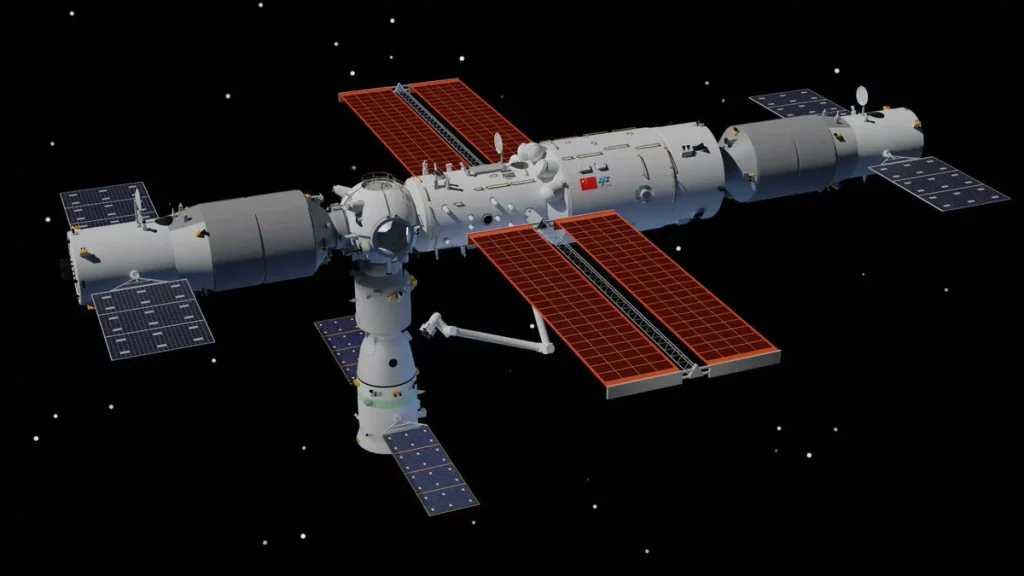Strategic Disclosure: Chang’e 8’s Autonomous Lunar Resource Mapping
In recent years, China has accelerated its ambitions to become the dominant force in space exploration, and 2025 marks a significant turning point in that strategy. Central to this advance is the Chang’e 8 lunar mission, a robotic spacecraft equipped with sophisticated artificial intelligence (AI) systems designed to autonomously identify and mark valuable mineral rights on the Moon. This capability represents a bold evolution in space resource claims, moving beyond traditional exploration to assert automated territorial and resource boundaries on celestial bodies.
Chang’e 8, launched in late 2024, is equipped with advanced mineralogical sensors, high-resolution imaging, and onboard AI algorithms capable of real-time data processing. This allows the spacecraft to survey lunar surface areas and automatically flag promising deposits of rare earth elements, helium-3, and water ice. More importantly, the AI system autonomously records and registers these mineral sites into an electronic ledger that China intends to use as a de facto claim registry.
By enabling autonomous resource identification and recording, China aims to leapfrog the slower, human-dependent methods that have characterized prior space missions. This real-time “mapping and claiming” system allows China to establish priority over lunar resources rapidly and efficiently, potentially preempting other countries’ claims, including those of NASA and its international partners. This approach also underscores China’s integration of AI into its broader space policy, where autonomous decision-making systems are becoming vital tools for geopolitical advantage beyond Earth.
Legal Vacuum: International Space Law and the AI Exploration Gap
The strategic use of AI to claim extraterrestrial resources reveals a significant legal gray area within existing international space law. The foundational framework governing space activities—the 1967 Outer Space Treaty—explicitly prohibits any nation from claiming sovereignty over celestial bodies like the Moon or planets. However, it does allow for the exploration and use of space resources, a provision whose interpretation remains hotly contested.
Crucially, the Outer Space Treaty and subsequent agreements were drafted long before the advent of AI technologies capable of autonomous resource mapping and claim registration. The treaty does not address whether AI systems can act as legal agents in space resource claims or whether their autonomous registrations carry any binding international status. This legal vacuum has left room for countries like China to push the boundaries of space law by deploying AI as a tool to effectively assert mineral rights without formal sovereignty claims.
The ambiguity is compounded by the lack of a universally accepted regulatory mechanism for extraterrestrial resource claims. Current efforts to draft new international frameworks, such as the Artemis Accords led by the United States, focus on principles like transparency and sustainable use but do not explicitly cover AI’s role in exploration and claim-making. Without clear guidelines, China’s autonomous AI-driven approach risks setting a precedent that others may follow, potentially sparking conflicts over resource ownership and management on the Moon and beyond.

This legal uncertainty raises questions about the future of space governance. Should autonomous AI claims be recognized? What mechanisms will ensure fairness and prevent a race toward unilateral resource appropriation? As China pioneers these practices, the international community faces mounting pressure to clarify laws and standards that can address the evolving technological landscape of space exploration.
US Response: SpaceX Accelerates Starship Manned Missions
In response to China’s ambitious AI-driven lunar claims, the United States has ramped up its own efforts to maintain leadership in space exploration and resource access. A centerpiece of this counterstrategy is SpaceX’s Starship program, which aims to develop a fully reusable spacecraft capable of transporting large crews and cargo to the Moon, Mars, and beyond.
Throughout 2025, SpaceX has accelerated manned testing of the Starship vehicle, targeting crewed lunar missions as a priority within NASA’s Artemis program. By achieving rapid, cost-effective human spaceflight, the U.S. intends to reassert physical presence on the Moon as a demonstration of sovereign exploration and resource usage capabilities—an approach contrasting with China’s reliance on AI-automated systems.
The human missions serve several strategic purposes: they underscore American technological prowess, reinforce international partnerships, and provide the capability to physically survey, verify, and develop lunar resources. This is critical in the geopolitical context because physical presence is often viewed as a stronger claim than remote or autonomous mapping, lending legitimacy to resource rights in the eyes of many stakeholders.
Furthermore, NASA and SpaceX are exploring the integration of AI as a support tool rather than a primary claimant. NASA’s approach emphasizes a blend of human oversight and AI assistance to ensure compliance with international laws and ethical standards. This reflects a more cautious and legally grounded stance on AI’s role in space exploration, positioning the U.S. as a proponent of balanced innovation combined with governance.
Nonetheless, the race is tight. China’s rapid deployment of AI for autonomous lunar claims challenges the traditional paradigm of manned space dominance. It pressures the U.S. and its allies to accelerate innovations in spacecraft technology, legal frameworks, and international diplomacy to prevent losing ground in the unfolding competition for extraterrestrial resources.
Conclusion
China’s training of AI to autonomously claim celestial resources through the Chang’e 8 mission marks a disruptive shift in the race for space dominance. By leveraging AI’s real-time data processing and autonomous decision-making, China aims to bypass traditional limitations in space exploration and staking resource claims efficiently on the Moon. This bold strategy exposes the glaring legal gaps in international space law concerning AI and extraterrestrial resource rights, creating tensions that the global community has yet to resolve.
In parallel, the United States is doubling down on human spaceflight capabilities through SpaceX’s accelerated Starship program, asserting physical presence as a counterbalance to China’s AI-led advances. The unfolding dynamic between AI autonomy and human-led exploration encapsulates the new frontier of geopolitical competition beyond Earth.
As AI continues to redefine how celestial bodies are explored and claimed, establishing clear international legal frameworks will be critical to prevent conflicts and ensure peaceful, equitable use of space resources. The coming years will determine whether humanity can govern the final frontier collaboratively or slide into rivalrous competition fueled by unregulated technological leaps.











































Discussion about this post